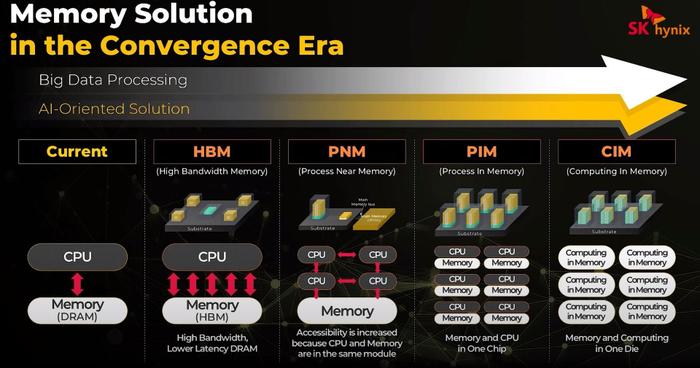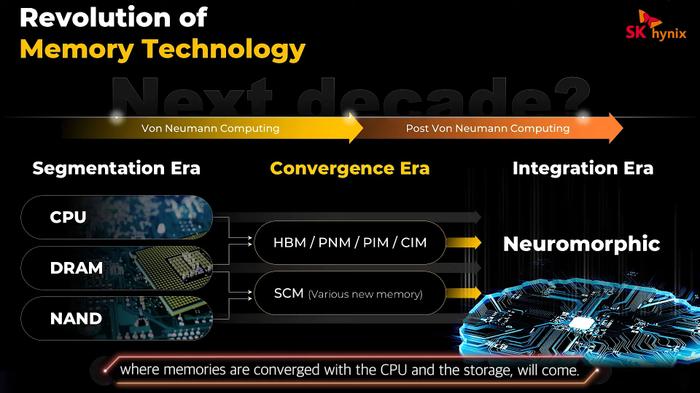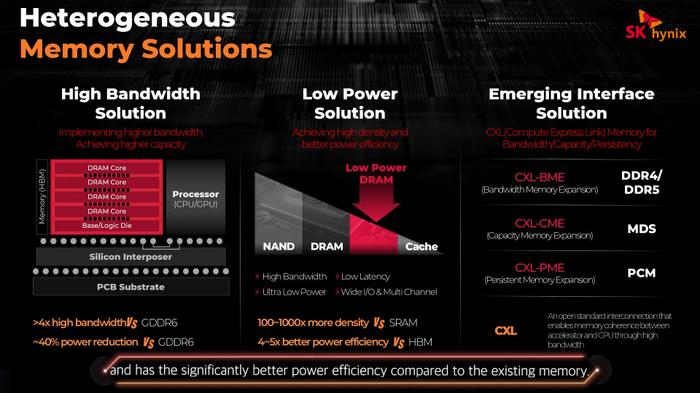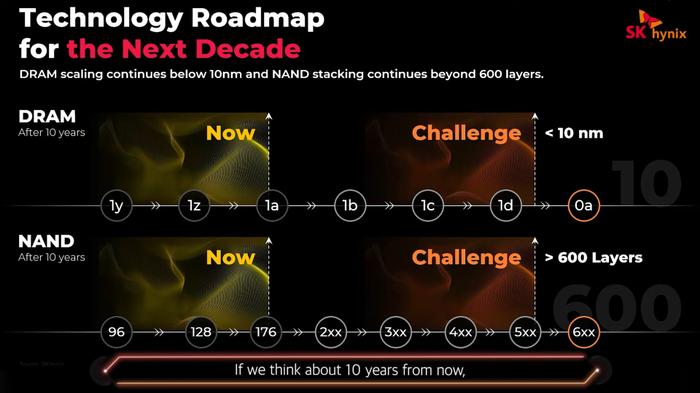At the current Institute of Electrical and Electronics Engineers’ International Reliability Physics Symposium (IEEE IRPS) 2021, SK hynix CEO Seok-Hee Lee presented a keynote about the future of the computer memory industry. In brief, Lee foresees the convergence of memory (RAM) and logic (CPUs, GPUs etc), and talked about the technologies that could get us to this ultimate destination.
The steps we will see taken by the industry going forward are going to be as in the bullet points below, reckons the SK hynix boss:
- Additional use of HBM tech to begin the journey of converging memory and logic.
- Introducing Processing Near Memory (PNM) by putting memory and processing on the same IC module.
- Transition to Processing In Memory (PIM), where the CPU and the memory exists within a single package.
- Conclude the above journey with the introduction of Computing in Memory (CIM), where the CPU and the memory is integrated within in a single die.
SK hynix is the world's second largest memory maker but unlike the largest (Samsung) it doesn't produce processors in any form. So, how can it move forward with these plans? Lee proposes rivals to get together to form a cooperative partnership within the semiconductor industry ecosystem. In particular the SK hynix CEO is looking to start a "strategic partnership for Open Innovation based on collaboration and sharing with customers, suppliers, academia and government". The admirable goal will add economic and social value with smarter, faster and more efficient computing - and the benefits that will bring.
As well as the visionary statements and outlines, Lee put down what might be one of the firm footings for faster memory/processing intercommunication. A new heterogeneous computing memory interface called Compute Express Link (CXL) was proposed as a complement to the PCIe bus. CXL interfaced memory would be able to move data more quickly and more efficiently between CPU and graphics / compute accelerators or smart network interfaces. Already major data centre and industry ecosystem players are working in the CXL consortium to establish this.
Lee's presentation including further insights into the likes of DDR5, NAND Flash and more, is embedded above. It contains chapter markers so you can skip to whatever might interest you.

















